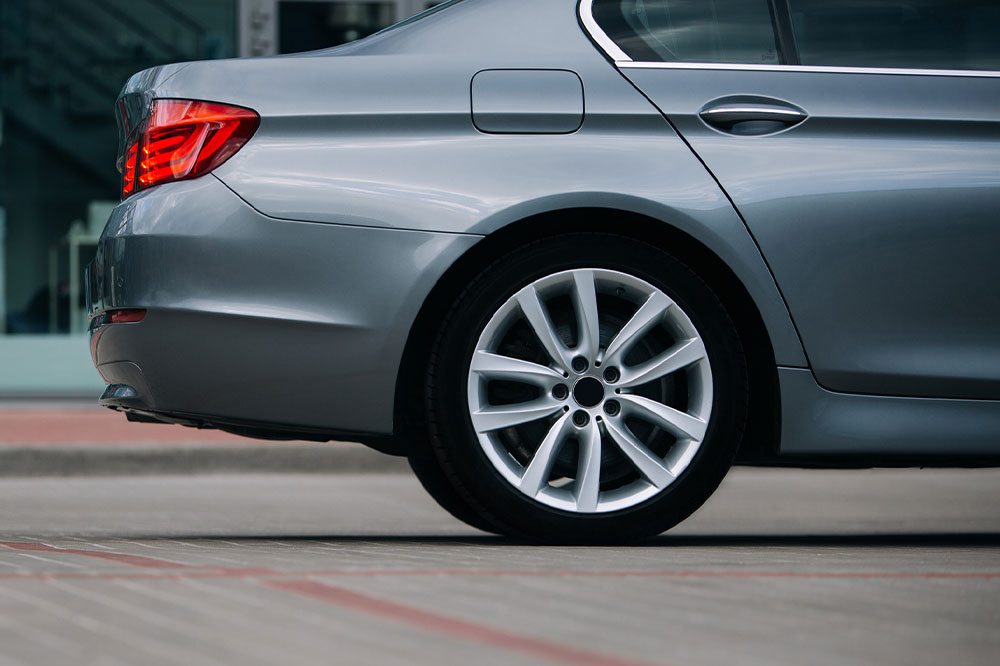Ultimate Guide to Buying a Certified Pre-Owned BMW: What You Need to Know
This comprehensive guide provides essential tips and insights for purchasing a used BMW. Covering model selection, depreciation, maintenance costs, vehicle history, warranties, and inspection tips, it aims to help buyers make informed decisions and enjoy the luxury and performance of BMW vehicles with confidence.

Comprehensive Guide to Purchasing a Used BMW Vehicle
Investing in a pre-owned BMW is a decision that combines passion for luxury with practical financial planning. Whether you're a first-time buyer or a seasoned car enthusiast, understanding the nuances of purchasing a used BMW can ensure that you make an informed decision, avoid potential pitfalls, and enjoy the driving experience that only BMW can deliver. This comprehensive guide will walk you through every critical aspect, from selecting the right model to understanding costs and evaluating vehicle history, all aimed at helping you make the best choice for your needs and budget.
Essential Factors in Choosing a Used BMW:
Begin with extensive research on the variety of BMW models available on the second-hand market. Different models cater to diverse preferences, whether you desire sporty dynamics, family-friendly SUVs, or luxurious sedans.
The BMW Series 1, for instance, is renowned as a compact luxury vehicle perfect for city driving. It features rear-wheel drive and comfortably seats four passengers, making it ideal for singles or small families.
Explore the Series 3 lineup, which offers versatility with both rear-wheel and all-wheel-drive options. These sedans are praised for their sporty handling combined with everyday practicality.
Among the popular choices are variations like the E90 sedan, E91 station wagon, E92 coupe, and the E93 convertible, each offering unique styling and features.
If your budget allows, consider older yet affordable options like the E46 coupe, which remains a favorite among enthusiasts for its classic design and driving dynamics.
The Series 5 stands out as a mid-size luxury sedan, available with all-wheel drive and diesel options that deliver better fuel efficiency and performance for the discerning driver.
For those seeking maximum luxury and comfort, the Series 7 models boast premium leather seats, exquisite wood trims, and advanced technological features suitable for VIPs or chauffeurs.
BMW's SUV range is represented by models like the X3 and X5. The X3 serves as a versatile compact SUV, while the larger X5 provides a more commanding presence and increased cargo space, with prices often above $5,000 for well-maintained units.
Understanding Depreciation, Resale Value, and Investment Longevity:
BMW vehicles tend to depreciate faster than some of their luxury counterparts, which impacts resale values significantly over a few years.
Annual depreciation rates for BMWs are often higher compared to brands like Audi or Mercedes-Benz, which makes timing your purchase crucial for optimal resale price.
Models such as the Series 1 and X5 tend to retain their value longer, especially when properly maintained and kept in excellent condition.
Buying slightly older BMW models can be economically advantageous—they represent a lower upfront cost and have already undergone the steepest depreciation phase.
Costs of Maintenance and Repairs:
Owning a BMW involves significant maintenance expenses. Regular upkeep, quality parts, and repairs tend to be expensive due to the complexity of the engineering.
Use of synthetic fuels, high-quality tires, and premium oils helps optimize performance and longevity.
Labor charges are notably higher because BMWs feature advanced electronics and intricate mechanical systems.
Vehicles produced before 1999 can often be repaired more affordably by mechanics familiar with older BMW models, making them a more practical choice for budget-conscious buyers.
Common Issues to Watch Out For:
Modern BMWs come equipped with sophisticated electronic systems, which may encounter faults related to fuses, batteries, or the iDrive system. These issues can sometimes be costly to fix.
Engine problems such as stalling, rough idle, or turbo failures are common, especially among turbocharged models with higher mileage.
The second-generation BMW X5, for example, has been reported to have repair costs reaching up to $50,000 in severe cases, emphasizing the importance of thorough inspection.
Listen for unusual rattles or noises from inside or outside the vehicle, which could indicate underlying mechanical or structural issues.
Vehicle History Reports and Verification:
Always request a comprehensive vehicle history report before making a purchase. Such reports provide insights into previous ownership, accident history, lien status, and maintenance records.
The Vehicle Identification Number (VIN), located on the windshield or door frame, is essential for obtaining these reports.
While free online reports can be useful, paid detailed reports usually include more extensive information such as lien status and detailed accident history.
Be alert for red flags like odometer tampering, inconsistent mileage, flood damage, or significant accident history, all of which can affect the vehicle’s value and reliability.
Warranty and Extended Coverage:
Check whether the used BMW still has some manufacturer warranty coverage remaining, which can significantly reduce repair costs for major issues.
Extended warranties or service plans can offer additional peace of mind, covering repairs beyond the original warranty period.
Warranty terms typically cover up to six years or 100,000 miles, including defects, repairs, and sometimes routine maintenance.
Always verify if the warranty is transferable to new owners and carefully read the fine print to understand what is covered and exclusions.
Pre-Purchase Inspection Services:
Prior to finalizing your purchase, always have a trusted, experienced mechanic conduct a thorough inspection of the vehicle.
This independent assessment can reveal hidden issues such as frame damage, flood exposure, high-mileage wear, or subpar previous repairs.
Select a mechanic familiar with BMWs to ensure expert evaluation and accurate diagnosis of potential problems.
This step is crucial for avoiding costly surprises and ensuring that your investment is sound.
In conclusion, buying a used BMW can be a rewarding experience when approached with thorough research, professional inspections, and clear understanding of the costs involved. By paying attention to vehicle history, depreciation, maintenance costs, and potential issues, you can enjoy the luxury and performance that BMW vehicles are known for, while safeguarding your investment effectively. Whether you’re purchasing for daily commuting, weekend adventures, or luxury status, this guide offers the essential insights to make your used BMW purchase a smart and satisfying decision.





